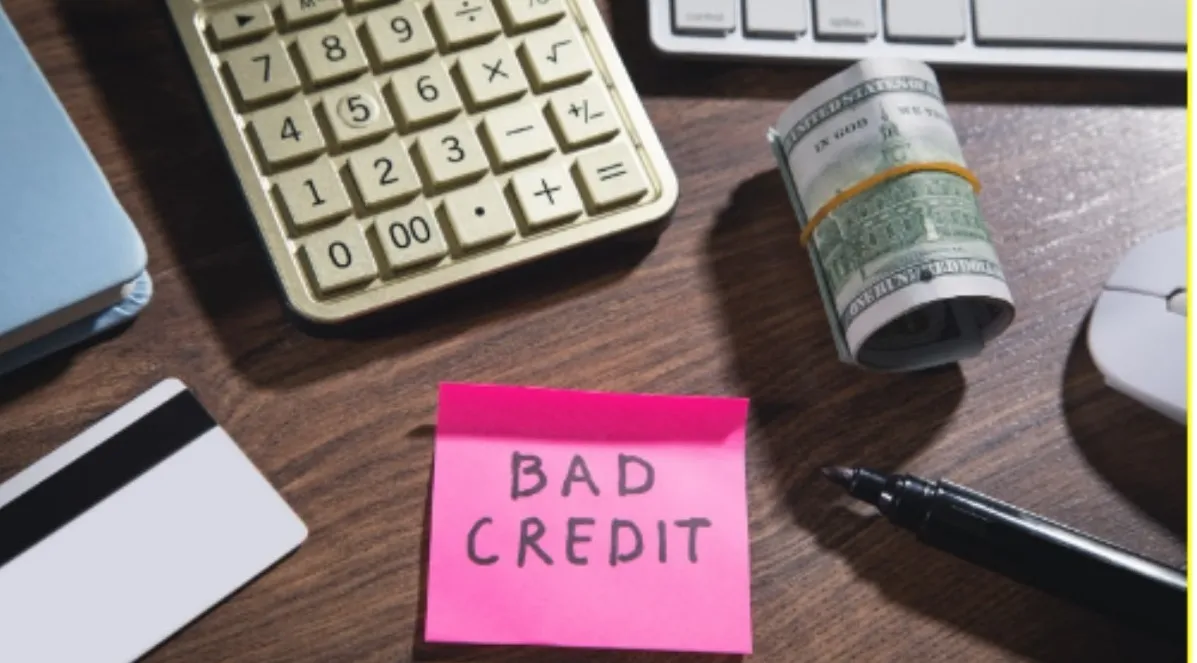Is It Possible To Get A Mortgage With Bad Credit UK?

Table of Contents
ToggleCan I get a mortgage with bad credit?
Are you dreaming of owning your home in the UK but want to know if your less-than-perfect credit history might stand in your way? You’re not alone. Securing a mortgage with bad credit can be intimidating, but here’s the good news: it’s not impossible.
In this blog, we’ll unravel the mystery surrounding the prospect of getting a mortgage with bad credit in the UK. We’ll explore the steps you can take, the options available, and the key factors to consider as you navigate the challenging yet promising path towards homeownership. So, if you’re ready to turn your homeownership dreams into reality, read on to discover how it can be done, even with less-than-ideal credit.
What is 'bad credit'?
Bad credit is a term used to describe a poor credit history. This includes missed payments, defaults, and County Court Judgements (CCJs).
Your credit history is recorded by credit reference agencies (CRAs), which are companies that collect and store information about your borrowing habits. Lenders use this information to assess your creditworthiness and decide whether to lend you money.
If you have bad credit, you are seen as a higher-risk borrower. This means that lenders are more likely to charge you higher interest rates and fees, and they may also require you to have a larger deposit.
Some things can lead to bad credit, such as:
- Missing payments on credit cards, loans, or other debts
- Defaulting on a loan
- Having a County Court Judgement (CCJ)
- Being declared bankrupt
- Having a large amount of debt relative to your income
Why is it harder to get a mortgage with bad credit?
There are a few reasons why it is harder to get a mortgage with bad credit.
- Lenders see you as a higher risk.A bad credit history shows lenders that you have struggled to repay debt. This means that they are more likely to believe that you will also struggle to repay a mortgage.
- Lenders may charge you higher interest rates.Lenders charge interest rates to compensate for the risk of lending money. Because borrowers with bad credit are seen as a higher risk, lenders will typically charge them higher interest rates.
- Lenders may require a larger deposit.A deposit is a down payment that you make on a mortgage. Lenders typically require borrowers to deposit at least 10% of the purchase price of the home. However, borrowers with bad credit may be required to make a larger deposit, such as 20% or 30%.
In addition to these reasons, lenders may also be more selective about the types of mortgages they offer to borrowers with bad credit. For example, some lenders may only offer government-backed mortgages to borrowers with good credit.
How to increase your chances of getting a mortgage if you have bad credit
There are several things you can do to increase your chances of getting a mortgage if you have bad credit:
- Check your credit report and fix any errors.You can get a free copy of your credit report from each of the three major credit bureaus once per year at annualcreditreport.com. Review your credit report carefully and look for any errors. If you find any errors, contact the credit bureau immediately to have them corrected.
- Improve your credit score.Your credit score is a three-digit number that lenders use to assess your creditworthiness. A higher credit score means that you are a lower-risk borrower and are more likely to be approved for a mortgage. There are several things you can do to improve your credit score, such as paying your bills on time and in full, reducing your debt, and keeping your credit utilization low.
- Save a larger down payment.A down payment is a percentage of the purchase price of the home that you pay upfront when you buy a home. A larger down payment will reduce the money you need to borrow and make you less risky to lenders.
- Get pre-approved for a mortgage.Getting pre-approved for a mortgage shows sellers that you are a serious buyer and have already been approved for a loan. This can give you an edge over other buyers, especially in a competitive market.
- Consider a government-backed mortgage.Government-backed mortgages, such as FHA and VA loans, have more flexible lending requirements than conventional mortgages. This means that you may qualify for a government-backed mortgage even if you have bad credit.
- Use a mortgage broker.A mortgage broker can help you find a lender willing to lend to you with bad credit. Mortgage brokers have access to a wide network of lenders and can help you find the best mortgage deal for your needs.
Bad Credit Mortgage Options
There are some mortgage options available to people with bad credit. These options typically have higher interest rates and fees than mortgages for people with good credit, but they can still be a good option for people who need to buy a home but have bad credit.
Here are some of the most common bad credit mortgage options:
- Subprime mortgages:Subprime mortgages are designed for people with bad credit. They typically have higher interest rates and fees than conventional mortgages, but they may be the only option for people with terrible credit.
- Guarantor mortgages:Guarantor mortgages require you to have a guarantor who is willing to repay the mortgage if you are unable to do so. This can be a good option for people with bad credit who have a friend or family member willing to co-sign on the loan.
- Second charge mortgages:Second charge mortgages are secured against your home as a second charge, meaning that the lender has the right to repossess your home if you default on the mortgage. These mortgages typically have higher interest rates and fees than conventional mortgages. Still, they may be an option for people with bad credit who need to borrow more money than they can qualify for with a first-charge mortgage.
- Government-backed mortgages:Government-backed mortgages, such as FHA and VA loans, have more flexible lending requirements than conventional mortgages. This means that you may qualify for a government-backed mortgage even if you have bad credit.
What is the lowest credit score to buy a house?
The lowest credit score to buy a house in the UK varies depending on the lender and the type of mortgage you are applying for. However, you will generally need a credit score of at least 566 to be approved for a mortgage.
If you have a credit score below 566, you may still be able to get a mortgage, but it will likely be more complex and more expensive. You may need to make a larger down payment, pay higher interest rates, or get a guarantor.
Here is a breakdown of the minimum credit score requirements for different types of mortgages:
- Conventional mortgages:620
- FHA loans:580
- VA loans:580
- USDA loans:580
It is important to note that these are just minimum credit score requirements. Lenders may also consider other factors, such as your debt-to-income ratio, employment history, and assets.
If you are still determining what your credit score is, you can check it for free from each of the three major credit bureaus once per year at annualcreditreport.com. You can also use a credit monitoring service to track your credit score and get alerts for any changes.
Can a mortgage broker help with bad credit?
Yes, a mortgage broker can help with bad credit. Mortgage brokers have access to a vast network of lenders, including those specializing in bad credit mortgages. They can help you find a lender that is willing to lend to you with bad credit and to get the best possible mortgage deal.
Here are some of the ways that a mortgage broker can help you if you have bad credit:
- They can find a lender that is willing to lend to you.Mortgage brokers have relationships with a variety of lenders, including lenders who specialize in bad credit mortgages. This means that they can help you find a lender that is willing to lend to you even if you have bad credit.
- They can help you to get the best possible mortgage deal.Mortgage brokers can compare offers from different lenders to find you the best possible mortgage deal. This includes finding a lender with the lowest interest rates and fees.
- They can help you to understand your options.Mortgage brokers can help you to understand the different types of bad credit mortgages available and to choose the right mortgage for your needs.
- They can help you to prepare your application.Mortgage brokers can help you to prepare your mortgage application and to gather the necessary documentation. This can increase your chances of getting approved for a mortgage.
If you have bad credit and are considering buying a home, it is a good idea to work with a mortgage broker. A mortgage broker can help you find a lender willing to lend to you with bad credit and get the best possible mortgage deal.
How can I improve my credit score?
There are several things you can do to improve your credit score:
- Pay your bills on time and in full.This is the most important thing you can do to improve your credit score. A single late payment can stay on your credit report for up to seven years.
- Reduce your debt.The amount of debt you have relative to your income is one of the most significant factors that lenders consider when calculating your credit score. Aim to keep your debt-to-income ratio below 35%.
- Keep your credit utilization low.Your credit utilization is the amount of credit you use compared to your total available credit. Aim to keep your credit utilization below 30%.
- Avoid opening new credit accounts unnecessarily.Whenever you apply for a new credit account, a hard inquiry is placed on your credit report. Too many tricky questions can lower your credit score.
Improving your credit score takes time, but it is worth it. A good credit score can help you qualify for lower interest rates on loans and credit cards, and it can also make it easier to rent an apartment or get a job.






